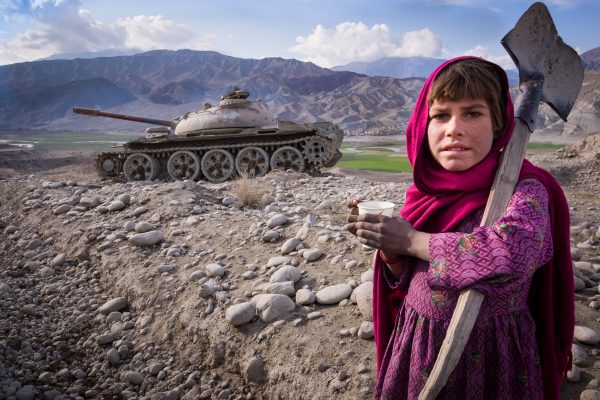As cliché as it sounds, the media’s representation of a certain culture matters. It shapes the discourse between the public towards that culture. So when people, not just Muslims, take issue with, for example, a certain media personality’s crusade against Muslims on their television show, they actually do have a right to be upset.
But there are these phrases being passed around, both used by people like Sam Harris, such as a ‘moderate Muslim’ or a ‘Muslim who doesn’t take the faith seriously’. I can’t say whether these phrases help people understand the issues, but, as a North American who was raised as a Muslim, I do not understand what on earth these phrases could mean.
There’s a few reasons to this.
The first is that I’m a nonviolent, peace advocating Muslim, but I take my faith seriously. As a matter of fact, I have those ideologies because of my faith. My best friends donate so much of their time to charity, whether it’s helping a friend in need or helping the homeless, but they take their faith seriously. At the same time I’ve seen Muslim people who are angry and vile, but they don’t take the faith seriously. We are all completely different, but ‘Muslims who don’t take the faith seriously’ puts all of us in a box as if we all have the same belief.
The issue here is that identifying as a Muslim is not the same as identifying as a Canadian because the latter has geographical boundaries to it. I love British culture but have no genealogical link to Britain, so I cannot call myself British. Islam is a religion, and identifying as a certain religion usually implies you have some weight of seriousness towards your religion.
The second is something I’ve come to learn recently; everyone has differences when it comes to their faith. Asking someone how religious they are is an irrelevant question because people connect to spirituality in different ways. What I consider religious is not the same thing as what another Muslim would. It’s a subjective term, because religion is, in it’s own way, subjective. However these phrases try to categorize Muslims into polarized groups that determine whether we are terrorists or just moderate. There’s many things that shape a person’s ideology; it’s not entirely religion. This brings me to my third and final point.
There is no such thing as a moderate Muslim. There genuinely cannot be. Islam is built on a personal relationship with God; everything you do, you essentially do it to please your Lord. Islam literally translates to ‘submit’, which should essentially prove how personal one’s faith is. Yes there are community-based aspects, but look at our day of Judgement; when it comes to being judged, you are alone in explaining your actions. With that being said, you can’t be moderate in something you’ve taken on. People see the limits of the religion differently. Think of it this way- is there such thing as a moderate Atheist? What defines a moderate Atheist? If I were a Buddhist, how would I be deemed moderate or not taking the faith seriously? More importantly, is there a Buzzfeed quiz I can take to determine how moderate of a Muslim I truly am?
These questions are nonsensical because there is no such thing as a moderate.
What critics don’t realize is that it’s not the religion, it’s certain people. As a Canadian who was brought up a Muslim, I have never had any of these radical or extremist ideas. There is so much more to take into account, such as cultural values and geographical issues. I can’t provide an answer to why radicalism and terrorism exists, but I wouldn’t pin it on a religion that’s over 1400 years old. There’s a lot more to what affects an ideology, but pinning it on Islam makes no sense. Pinning it on Islam only pins the blame on innocent people who just want to live and practice their faith.
by Mateen Manek
Mateen is a writer from Toronto, Canada and a student of Communication Studies at York University. He has an interest in poetry and dramatic arts. He also produces videos on YouTube talking about Canadian politics and cultural issues.





